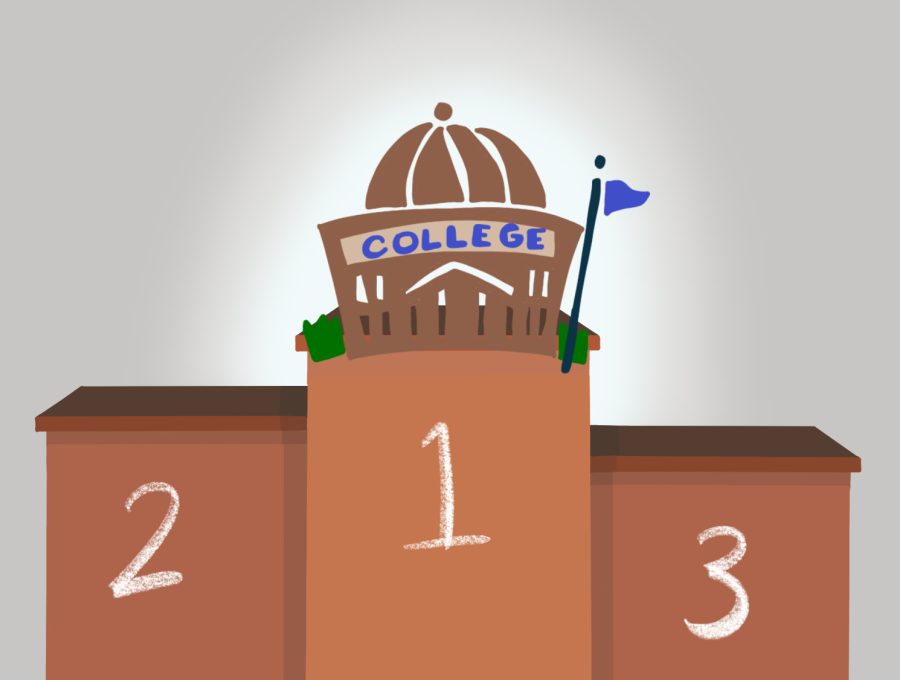Yale and Harvard Law School recently have announced they will dropping out of the College Rankings stirring up the age old controversy surrounding ranking colleges in general. There has long been criticism of the rankings system due to what is perceived as arbitrary statistics such as admission rate, class size and average scores, all of which can be manipulated on small and large scale. For example, your admission rate could be manipulated by increasing your early decision acceptance, thus making regular deadline admission rate look artificially lower. Thus, there has been endless complaining about the fairness of the system and existential questioning about whether there should even be a system for weighing colleges against each other at all. These may all be legitimate gripes and favor some groups over others, and it may stir your ire, until you recognize that there is no such thing as a perfectly egalitarian system, or even objective measures of quality.
Say for example you reduced the value of test scores in the algorithm and suddenly UVA jumps in front of UPenn. There would instantaneously be moaning from UPenn officials, and all others whose ranking was reduced by this move, about fairness and meritocracy. They would argue that a standardized test is an exceptional measure for the intellectual capacity of the student body, and they wouldn’t be wrong or right. By definition, weighing a group of things one against the other is an arbitrary exercise. Nowhere on a rock of God’s granite does it say that test scores are a better measure of educational quality than class size, nor does it say they aren’t. These measures are subjective and thus determined by the fickle and politically driven practices of human consensus. Therefore, argue some occupying silk-laden ivory towers, we should do away with these measures altogether.
Kurt Vonnegut cited the dangers of the practice of providing participation trophies for those of lower quality in a story he wrote in the 60s called “Harrison Bergeron.” In the imagined dystopian world, not all that far from where we are 60 years later, those who are beautiful need to wear ugly masks to avoid hurting the feelings of those without this beauty, those with athletic talents must wear weights to create an equal playing field, and those with higher intelligence must wear devices on their heads that interrupt their thinking and reduce its quality to an even playing field. The results are predictable. Everyone is squarely mediocre. But fairness presides in this dystopia and effort is roundly praised. It illustrates that participation trophies have real, nihilistic costs. In a zero-sum universe, reducing resources from an abundant pile to a one that is lacking results in equality and mediocrity; they are mutually inextricable.
This doesn’t mean we can’t continually revise these systems for measurement and quality like the college rankings. If every other school is ‘cooking the books’ on early application numbers, it doesn’t take a huge adjustment in the formula to account for this caveat. Evaluate both early and regular deadlines together. More generally speaking, if schools are trying to represent themselves as better institutions… don’t complain about it in cocktail parties; recommit yourself with that energy instead. Society-wide bickering about fairness, as accurate and acute as it may be, is a sinkhole of positive energy and enthusiasm, and that’s the stuff that grows countries and buds dreams. Trying to present as a better, stronger institution is perhaps not such a bad thing, provided a modicum of underlying ethics; it’s actually a form of self-improvement. Attempting to self-better by thinking creatively about how to best manipulate the parameters circumscribing your station is the bedrock of human advancement.
The elephant in the room is of course racial equality… and gender equality, and ethnic equality, and sexual, and age, and appearance and… you get the idea. These are all excellent causes; I have sympathy for all of these legitimate moral dilemmas; they are all explicit and implicit and unfair fundamentally, yes. We want the US to be a place equal-opportunity, and it’s not, it most certainly is not. In fact, the rankings debacle is likely intimately related to these inequalities. The Supreme Court will probably look to eliminate or greatly reduce affirmative action by the Supreme Court in admissions. Colleges would like to control their own destinies in the make-up of their student-bodies, and eliminating affirmative action while maintaining an adherence to rankings would force colleges to accept a more homogenous and less diverse, but more on paper qualified student body.
But here’s a mind-blowing simple solution that’s roundly and bafflingly ignored. What if instead of trying to force equality on students that have reached 22, we devoted all of the dollars and general human resources devoted to complaining and fighting over it to better educational institutions for impoverished, and largely black and hispanic, areas? What if all the billions of dollars that went into all of that litigation, all those hours devoted to bickering over it and debating it and policy-application went to paying underpaid teachers of those students? Improving embarrassingly dilapidated facilities in poor areas? Providing academic resources to those who can’t afford them? Why fight internal bleeding by frantically sowing up the external manifestation of the wound, shouting down anyone pointing out the flaws to that approach, and perpetually complaining that the wound won’t heal? Fighting about rigging the end step in the process makes so little sense it hurts to anyone who attempts to be temperate about these things, which is not an easy position to take these woke days.
In the old proverb, you teach the person to fish, you don’t waste a lifetime hollering to the ocean that it’s unfair that the person doesn’t get a larger fishing pole. Even if you do somehow heroically win that battle with the ocean (which is impossible) and every individual on the coast – man, woman, and german shepard– gets a shiny new pole, fair and square, they still won’t know how to fish with it. True, they will all be entirely equal. The will all will all relish in the Kumbaya of bait & tackle abundance. They will all be ranked number one in fishing capability, objectively and forever, in a Platonic euphoria. And they will all starve in elusive delight.






